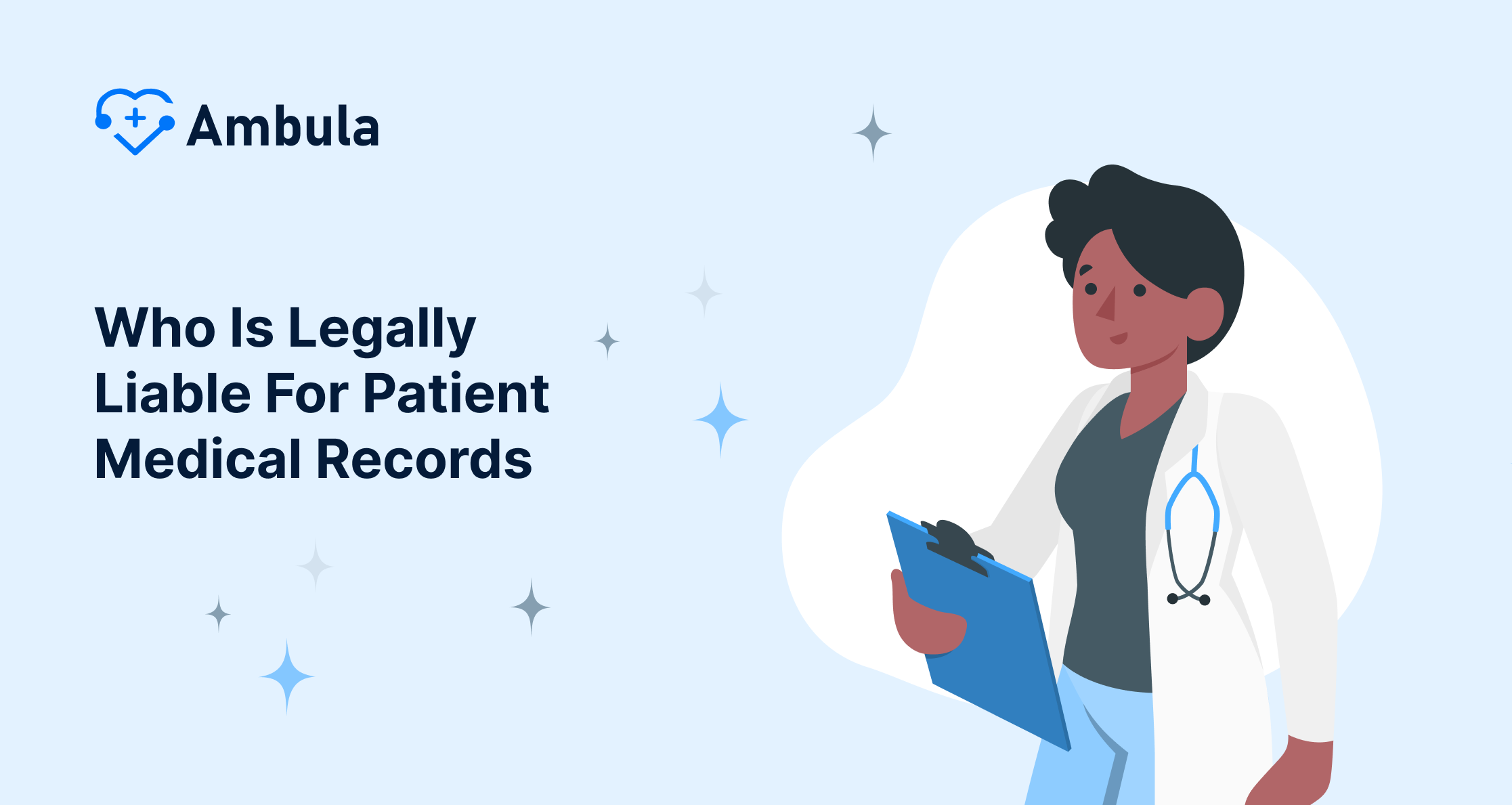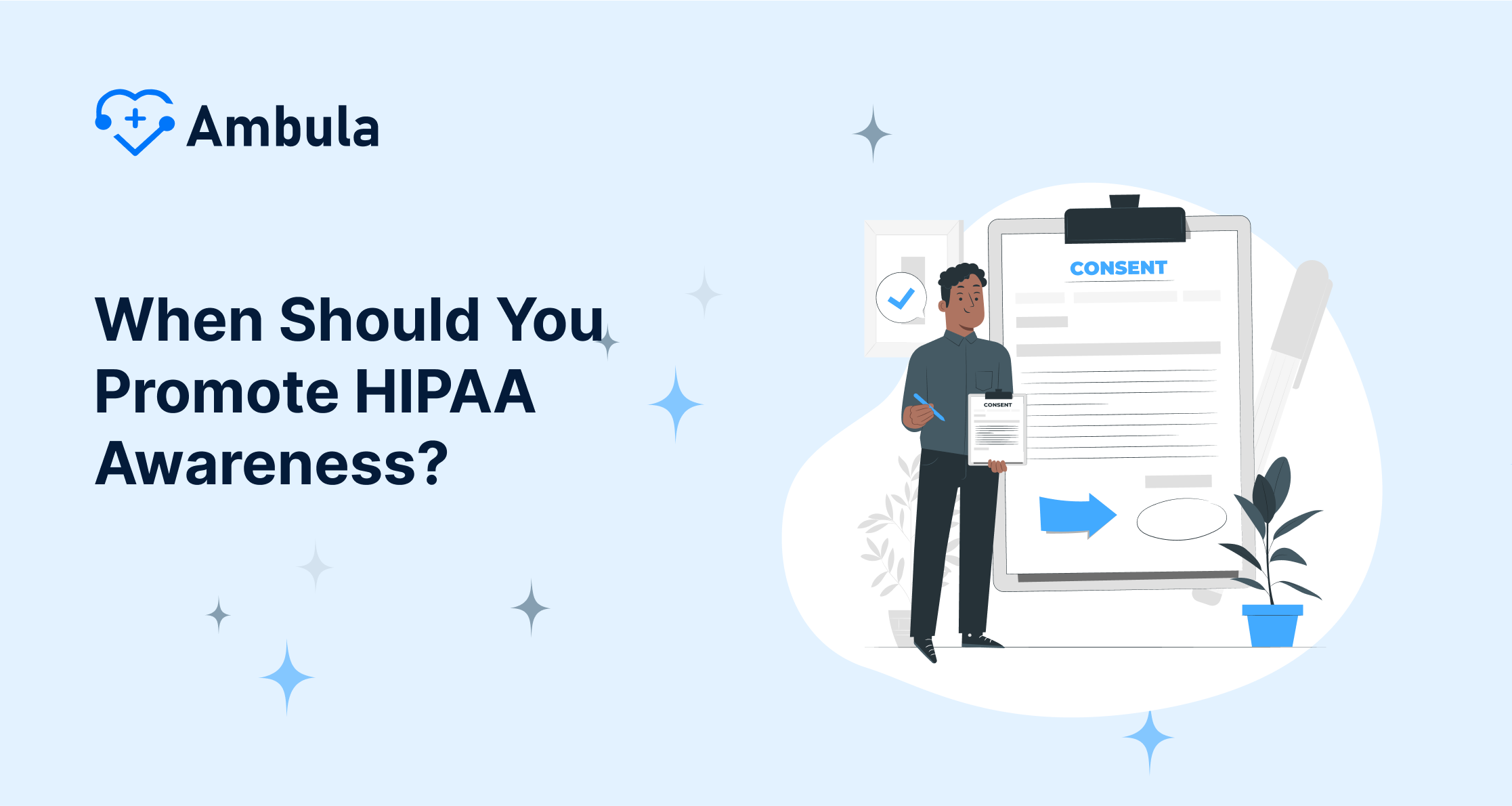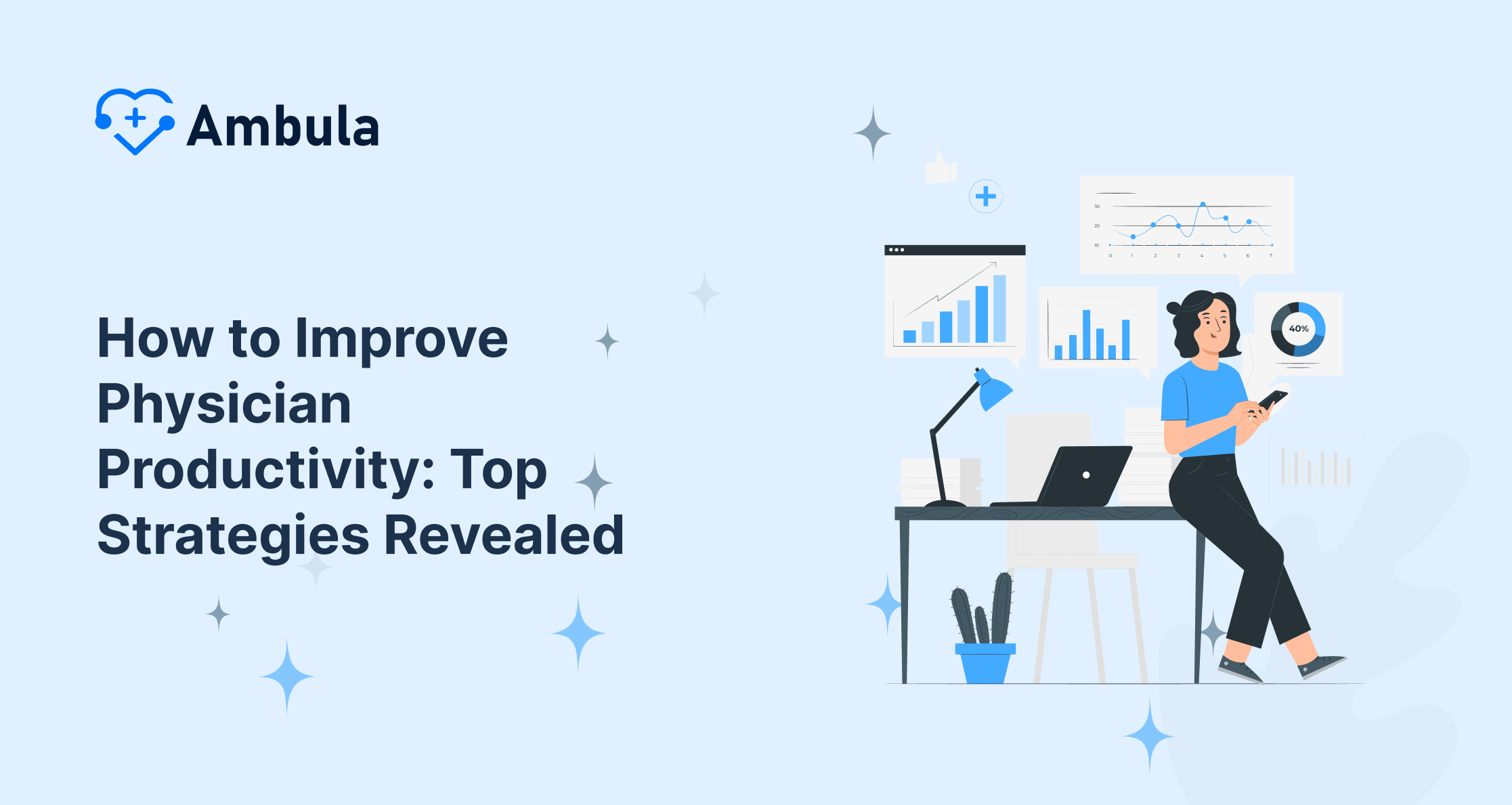A dedicated doctor, once passionate about caring for patients, now feels overwhelmed by administrative tasks, long hours,and emotional strain. Exhausted and disillusioned, they consider leaving the profession altogether. This, unfortunately, is the grim reality for many doctors today, facing a staggering burnout rate exceeding 40%, according to a 2020 National Academy of Medicine report.
The consequences of doctor burnout are far-reaching and alarming. Not only does it negatively impact the well-being of healthcare professionals, but it also poses a significant threat to patient care. Studies have linked physician burnout to increased medical errors, patient satisfaction, and healthcare costs.
But there’s a glimmer of hope emerging from the realm of technology. Artificial intelligence (AI) is increasingly being explored as a potential tool to alleviate doctor burnout and revolutionize healthcare delivery. Let’s explore how AI can become the doctor’s armor against burnout, empowering them to provide better care for themselves and their patients.
Stay tuned for further exploration into how AI is fighting doctor burnout!
Unveiling the Transformative Power of AI in Healthcare
The healthcare landscape is undergoing a metamorphosis driven by an intelligent force: Artificial Intelligence (AI). Beyond mere buzzwords, AI offers tangible benefits that have the power to redefine how we diagnose, treat, and prevent illnesses. Let’s embark on a journey to explore how AI can shape a future characterized by personalized precision, proactive prevention, and enhanced patient safety.
AI, armed with its data-crunching prowess, can analyze vast datasets of medical images, genetic information, and patient records, identifying subtle patterns that might escape the human eye. This unlocks a new era of early detection, where life-threatening diseases like cancers are pinpointed in their earliest stages, potentially saving lives and improving long-term outcomes. Personalized diagnoses become a reality as AI factors in individual patient profiles, leading to more accurate assessments and targeted treatment plans.
Minimizing Errors, Maximizing Safety
Human error is an unfortunate reality in healthcare. AI, however, offers the potential to act as a guardian angel, reducing medical errors by analyzing vast datasets of past occurrences and suggesting preventive measures. This can drastically reduce medication errors, misdiagnoses, and surgical complications, improving patient safety. Real-time support becomes a reality as AI-powered systems assist healthcare professionals during procedures, offering valuable insights and highlighting potential risks, further enhancing patient safety and optimizing clinical decision-making.
Efficiency Gained, Time for What Matters Most
Imagine healthcare professionals freed from tedious tasks, allowing them to focus on the core of their calling – patient care. AI can automate administrative tasks like scheduling appointments, managing medical records, and generating reports, freeing up valuable time for doctors and nurses to spend with patients. Streamlined workflows emerge as AI analyzes data, suggests more efficient treatment plans, optimizes resource allocation, and predicts bed availability, improving overall healthcare system efficiency.
This is just a glimpse into the transformative potential of AI in clinical decision-making. While responsible development and ethical considerations remain crucial, the future of AI in healthcare paints a promising picture of personalized precision, proactive prevention, and enhanced patient safety. As we harness the power of AI responsibly, we can unlock a future where healthcare becomes more effective, accessible, and truly centered on the individual.
Clinical Decision Support
Doctors have long faced the challenge of deciphering complex medical landscapes and piecing together clues from scans, tests, and research to reach accurate diagnoses. Imagine having a colleague by their side, not just another doctor, but one capable of analyzing mountains of data at lightning speed, identifying patterns invisible to the human eye. This reality is emerging with platforms like IBM Watson Health and DeepMind, ushering in a new era of AI-powered diagnostics and treatment planning.
These platforms aren’t simply data-churning machines but rather meticulously trained on vast libraries of medical records, imaging scans, and research papers. They become expert navigators of this vast knowledge base, uncovering connections and anomalies that might elude even the most experienced doctor. They can act as detectives, meticulously scrutinizing blood tests, genetic data, and intricate details within scans, potentially leading to earlier diagnoses of complex diseases like cancer or rare genetic disorders.
But their role doesn’t stop there. These AI platforms continuously learn and evolve, constantly updated with the latest research and treatment options. This vast knowledge base surpasses the capacity of any individual doctor, offering insights and suggestions that push the boundaries of traditional diagnosis.
Personalized Medicine
The days of standardized treatment plans are fading with the rise of precision medicine, fueled by AI-powered analysis of individual patient data; a new era of healthcare is dawning, where treatment becomes as unique as the patients themselves.
Imagine an oncologist faced with a complex cancer case. They analyze the patient’s genetic makeup, medical history, and lifestyle, feeding this data into an AI platform. This digital Sherlock Holmes then sifts through vast databases, uncovering unique disease patterns and predicting potential responses to different therapies. Armed with this personalized roadmap, the doctor can tailor a treatment plan with pinpoint accuracy, maximizing its effectiveness while minimizing side effects.
This scenario, once science fiction, is rapidly becoming a reality in various specialties. In cardiology, AI analyzes heart scans and patient data to predict individual risks for heart disease, enabling early intervention and preventive measures. Imagine diabetes management transformed, with AI continuously analyzing blood sugar levels, suggesting personalized adjustments to medication and diet, and empowering patients to actively manage their health.
Beyond improved clinical outcomes, AI-driven healthcare fosters stronger patient engagement and satisfaction. Imagine receiving treatment recommendations that truly reflect your unique needs and concerns. This level of personalization fosters trust and empowers patients to become active participants in their healthcare journey.
This shift towards precision medicine unlocks a treasure trove of benefits:
- Improved treatment efficacy: Therapies tailored to individual patient profiles have a higher chance of success, leading to better clinical outcomes.
- Reduced side effects: By predicting individual responses, doctors can avoid ineffective or overly harsh treatments, minimizing adverse effects.
- Enhanced patient engagement: Personalized care plans foster trust and empower patients to actively participate in their health.
- Optimized healthcare resources: By targeting interventions strategically, healthcare systems can allocate resources more efficiently.
While challenges like data privacy and ethical considerations require careful navigation, the potential of AI in precision medicine is undeniable. We are witnessing the dawn of a new era where technology augments medical expertise, empowering doctors to offer personalized care and leading to a healthier future for all.
Workflow Optimization
The constant juggling of administrative tasks and patient care often leaves doctors feeling like they are drowning in paperwork. However, a beacon of hope shines in the form of artificial intelligence (AI), streamlining workflows and freeing up precious time for what truly matters – patient care.
Imagine a virtual assistant handling the administrative burden. Platforms like Qventus and Proximiti leverage AI to automate appointment scheduling and reminders, taking that weight off doctors’ shoulders. These smart-systems consider patient preferences, doctor availability, and traffic patterns to optimize scheduling, minimizing wait times and missed appointments.
But the benefits extend far beyond simply filling slots. AI can personalize appointment reminders, catering to individual needs and preferences. Imagine text messages with interactive maps and parking instructions, reducing patient stress and ensuring timely arrivals. Automated follow-up reminders can improve patient adherence to treatment plans, leading to better health outcomes.
The impact is transformative. Doctors no longer face many administrative tasks, gaining valuable consultation time, building rapport with patients, and pursuing professional development. This translates to improved clinic efficiency and reduced costs, while also contributing to enhanced patient satisfaction with their healthcare experience.
This shift towards AI-powered scheduling unlocks a multitude of benefits:
- Increased doctor time: By automating administrative tasks, doctors can reclaim significant time for patient care, consultations, and professional development.
- Improved clinic efficiency: Optimized scheduling reduces appointment gaps and missed appointments, streamlining clinic operations.
- Reduced administrative burden: AI handles scheduling and reminders, freeing staff and doctors from tedious tasks.
- Enhanced patient satisfaction: Personalized reminders and convenient scheduling options improve patient experience and satisfaction.
- Reduced healthcare costs: Efficient scheduling optimizes resource allocation and minimizes wasted time, leading to cost savings.
While ethical considerations and responsible data management remain crucial, AI-powered scheduling represents a groundbreaking shift in healthcare workflow optimization. By reclaiming time for care, this technology empowers doctors and fosters a future where they can focus on what they do best – providing compassionate and personalized care to their patients.
Research and Development
The traditional path to discovering new drugs is often arduous and lengthy, riddled with setbacks and missed opportunities. But hope for a faster, more efficient future emerges with the power of artificial intelligence (AI). By analyzing vast amounts of medical data, AI is transforming the landscape of drug discovery and clinical trials, paving the way for faster development of life-saving treatments and improved patient care.
Imagine sifting through mountains of scientific data, searching for hidden clues that unlock disease secrets. This is the task AI takes on, analyzing genetic information, protein structures, and clinical trial results at unprecedented speed and scale. Platforms like BenevolentAI and Exscientia are already making waves, utilizing AI to identify promising drug targets and design virtual molecules with specific therapeutic properties. In oncology, AI-powered platforms like Owkin analyze tumor data to predict patient response to different therapies, guiding personalized treatment plans and accelerating drug development for specific cancer types.
This isn’t just theoretical. In cardiology, AI-based analysis of patient data identified a potential new use for an existing drug, leading to a fast-tracked clinical trial and potentially saving countless lives. Additionally, AI can analyze clinical trial data in real-time, identifying potential safety concerns and optimizing trial design, leading to faster approval of effective therapies.
Ethical Considerations
While the potential of AI in healthcare is undeniable, its journey is not without challenges. Ethical concerns like data privacy, algorithmic bias, and job displacement loom large, demanding careful consideration as we navigate this transformative technology.
Data privacy lies at the heart of ethical concerns. Sharing sensitive medical data with AI systems raises vital questions about patient consent, ownership, and security. To address this, stakeholders like healthcare institutions and technology developers are implementing robust data governance frameworks, incorporating strong encryption, anonymization techniques, and clear patient consent protocols. Additionally, regulations like the GDPR and HIPAA in Europe and the United States provide legal frameworks for data protection.
Algorithmic bias represents another critical concern. If AI algorithms are trained on biased data, they can perpetuate existing inequalities in healthcare, harming marginalized communities. To mitigate this risk, stakeholders are focusing on diverse data sets, transparent algorithms, and rigorous testing for bias. Organizations like the Algorithmic Justice League and the Partnership on AI are actively involved in developing ethical guidelines and researching responsible AI development.
Job displacement fears are natural with any emerging technology. While automation will likely change some aspects of healthcare, creating new roles, upskilling, and reskilling initiatives are crucial. Healthcare institutions and governments can collaborate to provide training programs that equip professionals with the skills needed to thrive in the AI-powered healthcare landscape.
Ultimately, responsible AI development is paramount. This requires ongoing collaboration between researchers, developers, healthcare professionals, policymakers, and patients. Building trust in AI-powered solutions requires transparency, explainability, and accountability.
By addressing these ethical concerns head-on, we can ensure that AI becomes a force for good in healthcare, empowering doctors, improving patient care, and ultimately creating a healthier future for all.
Conclusion
The rising tide of doctor burnout threatens to engulf the very foundation of healthcare. However, a beacon of hope shines in the form of artificial intelligence (AI), offering many tools to combat burnout, empower doctors, and revolutionize healthcare.
From automating administrative tasks and streamlining appointments to analyzing medical data for personalized diagnostics and treatment plans, AI wields a multifaceted arsenal in the fight against burnout. Imagine doctors freed from paperwork, empowered with AI-powered insights, and able to focus on what truly matters – building meaningful relationships with patients and providing compassionate care.
However, the benefits extend far beyond burnout relief. AI is accelerating drug discovery, optimizing clinical trials, and paving the way for precision medicine. This translates to faster development of life-saving treatments and improved patient outcomes across the board.
This is just the beginning. The future holds immense potential for AI to transform healthcare delivery. Let’s embrace this technological revolution responsibly, harnessing its power to empower doctors, improve patient care, and ultimately create a healthier future for all.




